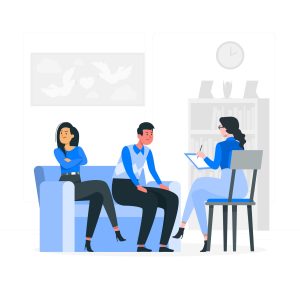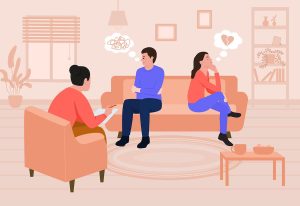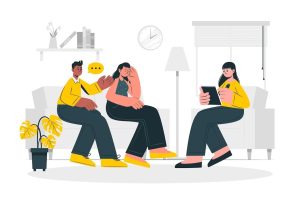
Trauma In Relationships: The Hidden Barrier To Love And Connection
Trauma can create a lens through which you view the world as an unsafe, unpredictable, and unwelcoming place. This distorted view can extend to your

Trauma can create a lens through which you view the world as an unsafe, unpredictable, and unwelcoming place. This distorted view can extend to your

So, you have tried having “the conversation” with your partner about going for couples counseling. You went in with hope, and a tinge of excitement

The decision to take up counseling can be confusing. Choosing the right therapist can be difficult, as there are different forms of therapy available around

Have you been considering couples counseling, but you are confused about it’s process, and all that it entails? There are a various types of therapy

Come March 8th and the focus and attention is on women. They’ve had their share of struggles in the past to get an equal footing

Revisiting the concept of love Over the years, the concept of soulmates has been smeared and airbrushed into unrealistic levels of love and companionship. Many

Treat Yourself to Self-love Today and Everyday Love, romance, dating & relationships are some of the many buzzwords as we approach the month of February

“I was seeing someone I met online. We went on a few dates and things seemed to be going well. All of a sudden no

Sexual difficulties are about as common as eating or sleeping disorders. Research shows that sexual dysfunction affects about 43% of women and about 31% of

Often, when we feel overwhelmed in our day to day lives, we wish to share our feelings, thoughts and perspectives with people who are part of our lives. We share these for several reasons – to feel validated, to find an emotional release, to ‘sort things out’ as we speak, and so on. Underlying many of these reasons is the need to be understood. However, sometimes it feels like they have misunderstood us, or have not completely understood. The feeling of being constantly misunderstood by people close to us can deeply impact us.

We specialize in combining psychotherapy with deep wellness practices like mindfulness and meditation and creating a customized mental health plan for individuals and organisations.
We specialize in combining psychotherapy with deep wellness practices like mindfulness and meditation and creating a customized mental health plan for individuals and organisations.

A young woman from another country moved with her family to live for one year in a town near the monastery. When, in the course of the year she discovered the monastery, she would periodically visit to have discussions with the Abbess. The Abbess introduced her to meditation, which became very meaningful for the young woman.
When the family’s year-long stay was drawing to an end, the young woman asked the Abbess, “In my country there is no Buddhism and no one has even heard about meditation. How can I continue to learn and deepen the practice you have started me on?”
The Abbess said, “When you return home ask far and wide for who, among the wise people, is recognized as having the greatest ability to listen. Ask that person to instruct you in the art of listening. What you learn about listening from such a person will teach you how to further your meditation practice.
― Gil Fronsdal, A Monastery Within: Tales from the Buddhist Path